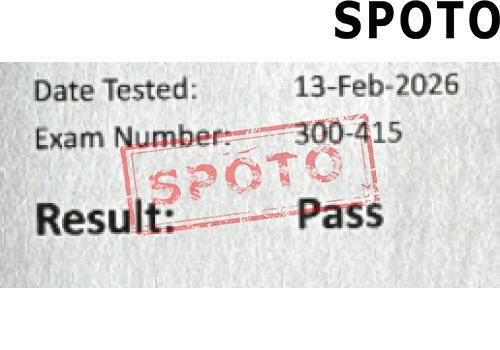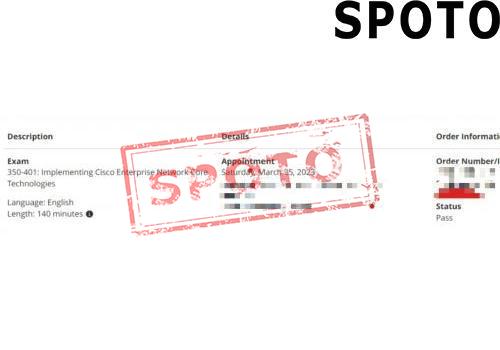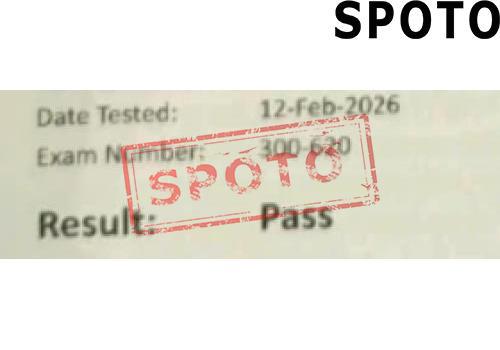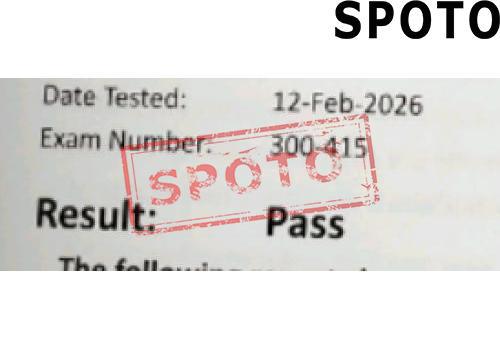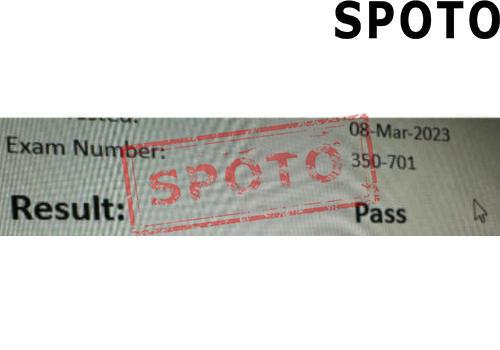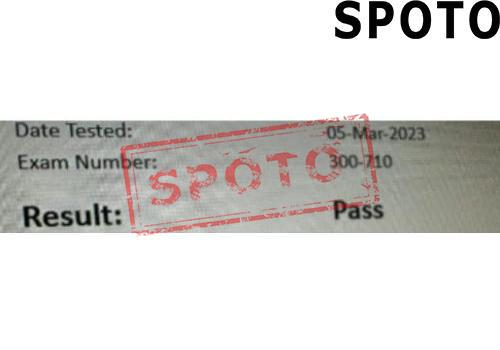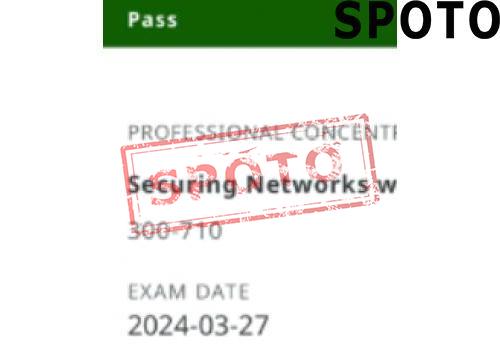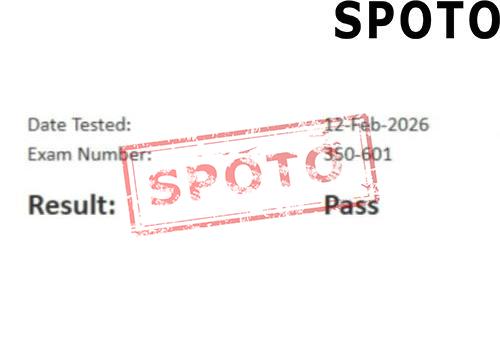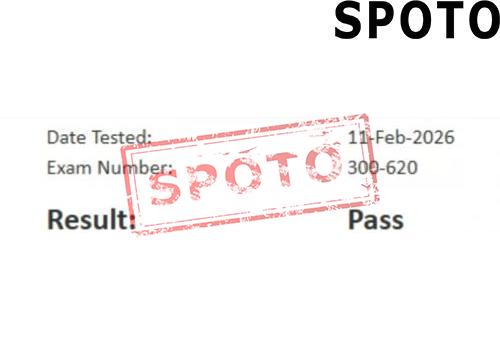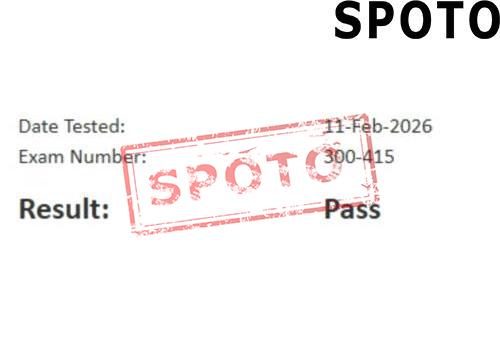
Table of Contents
The Cisco Certified Network Professional (CCNP) certification is a key milestone for IT professionals aiming to deepen their expertise in networking. Building upon the foundational knowledge acquired through CCNA (Cisco Certified Network Associate), the CCNP is designed for network engineers who want to enhance their skills in areas like routing, switching, security, and network management. But what exactly is the CCNP certification, and how can you prepare for it?
In this article, we'll break down what the CCNP certification entails, its significance in the networking industry, and effective ways to prepare for the exam.
1. What is CCNP Certification?
The CCNP certification is an intermediate-level credential offered by Cisco, aimed at networking professionals who wish to demonstrate their proficiency in managing and troubleshooting complex networks. Unlike the CCNA, which is more foundational, the CCNP is intended for individuals who are ready to tackle more advanced networking concepts and responsibilities.
CCNP covers a broad range of networking technologies and typically requires you to pass multiple exams in specific areas of focus. These areas include routing, switching, security, automation, and troubleshooting.
The CCNP program offers several tracks, so candidates can specialize in different aspects of networking. As of 2026, the major CCNP tracks include:
- CCNP Enterprise: Focuses on enterprise networking solutions, including advanced routing, switching, and wireless technologies.
- CCNP Security: Specializes in network security, including threat management, VPNs, and firewall technologies.
- CCNP Collaboration: Focuses on voice and video networking, including technologies for Unified Communications.
- CCNP Data Center: Specializes in data center infrastructure and technologies, including storage networking, virtualization, and cloud computing.
- CCNP Service Provider: Aims at professionals who manage networks for service providers, focusing on topics like network routing and automation.
The most common path for network professionals, particularly those with CCNA-level experience, is the CCNP Enterprise, which focuses on advanced networking skills such as EIGRP, OSPF, BGP, and more.
2. Why is CCNP Certification Important?
The CCNP certification is highly regarded in the networking industry. It provides proof of your ability to configure, troubleshoot, and maintain complex networks, making you an invaluable asset to any organization.
Here are a few reasons why earning the CCNP certification is important:
- Career Advancement: CCNP-certified professionals are often qualified for roles such as Network Engineer, Systems Engineer, Network Architect, and Infrastructure Manager. These positions offer higher salaries and greater responsibilities compared to entry-level roles.
- Industry Recognition: CCNP is recognized worldwide as a mark of excellence. Having this certification demonstrates to employers and peers that you have the expertise to handle advanced networking challenges.
- Specialized Knowledge: As businesses expand their network infrastructures and move toward cloud-based solutions, the demand for professionals with advanced networking skills increases. The CCNP certification prepares you to work with the latest technologies and trends in the field.
In addition, CCNP certification often acts as a stepping stone for CCIE (Cisco Certified Internetwork Expert), the highest level of Cisco certification.
3. What Are the Prerequisites for the CCNP Certification?
While there are no formal prerequisites for the CCNP certification, it is strongly recommended that candidates have already obtained the CCNA certification or have equivalent knowledge. The CCNA provides foundational networking knowledge, which is essential for understanding more advanced CCNP concepts.
The prerequisites for CCNP can vary slightly depending on the track you choose. For example:
- For CCNP Enterprise, you need a solid understanding of networking fundamentals, including IPv4, IPv6, and basic routing and switching.
- For CCNP Security, a good understanding of CCNA-level security concepts is recommended, as the certification delves deeper into network security protocols, firewalls, and threat mitigation strategies.
However, if you're confident in your networking skills and experience, you may be able to bypass CCNA and jump straight into the CCNP exams, though this is not generally recommended without the foundational knowledge.
4. The CCNP Certification Exam Structure
The CCNP certification typically requires you to pass multiple exams, depending on the track you choose. For example, the CCNP Enterprise track involves:
- Core Exam: The core exam is designed to test your knowledge of foundational enterprise networking technologies. This includes advanced routing, switching, network automation, and security. For example, the 350-401 ENCOR exam is required for the CCNP Enterprise track.
- Concentration Exam(s): After passing the core exam, you can select one or more concentration exams to specialize in a particular area. Some examples include the 300-410 ENARSI (Enterprise Advanced Routing and Services) exam for those focusing on advanced routing techniques, or the 300-415 ENSDWI exam for those interested in SD-WAN technologies.
Each exam has a combination of multiple-choice, drag-and-drop, and simulation-based questions, which require both theoretical knowledge and practical experience.
5. How to Prepare for the CCNP Certification?
Successfully preparing for the CCNP exams requires a focused and structured approach. Here are some key steps to guide you in your preparation:
1. Start with a Solid Foundation
Before diving into the CCNP material, ensure that you have a thorough understanding of CCNA-level concepts, including IP addressing, routing protocols (like RIP, OSPF, and EIGRP), and basic security measures. If you're not already comfortable with these topics, consider reviewing the CCNA study material before progressing to CCNP.
2. Use Official Cisco Study Materials
Cisco provides a range of official study resources, including books, video tutorials, and practice exams. These resources are designed to align with the exam objectives and provide a solid foundation for your study efforts.
For example:
- Cisco's official study guides for the 350-401 ENCOR exam cover all the necessary topics in-depth, from routing and switching to network automation.
- Cisco's Learning Network provides access to various study tools, online forums, and exam preparation tips.
3. Practice Labs
The CCNP exams include practical scenarios that test your ability to configure and troubleshoot networks. To be well-prepared, it's essential to practice hands-on. Consider setting up a home lab with physical equipment or using Cisco's Packet Tracer or Cisco VIRL (Virtual Internet Routing Lab) to simulate network configurations.
Alternatively, you can use platforms like SPOTO, which offer cloud-based practice labs, where you can practice CCNP-level configurations in a simulated environment. This approach lets you familiarize yourself with real-world scenarios without needing a full physical setup.
4. Join Study Groups and Forums
Study groups and online forums can be immensely helpful in your preparation. Joining communities like the Cisco Learning Network or Reddit's CCNP group allows you to ask questions, exchange resources, and learn from others' experiences. It also helps you stay motivated during your study journey.
5. Take Practice Exams
Practice exams are a great way to familiarize yourself with the exam format and identify areas where you may need more review. Many official practice exams, as well as third-party options, are available. They simulate the pressure of the actual exam and can help you assess your readiness.
6. Time Management
The CCNP exams are lengthy and can be mentally taxing. Make sure to manage your study time effectively by creating a schedule that covers all exam topics. Take regular breaks to avoid burnout and ensure that you're retaining the material.
6. Conclusion
The CCNP certification is a powerful credential that can significantly advance your career in networking. While it is challenging, with the right approach and resources, you can successfully prepare for and pass the exams. Starting with solid foundational knowledge, using official study materials, practicing hands-on, and engaging with the network community are all key strategies to help you achieve your CCNP certification.
Whether you're aiming for a more general CCNP Enterprise track or have a specific area of interest like CCNP Security or CCNP Collaboration, becoming a Cisco Certified Network Professional will not only open doors to advanced job roles but will also position you as a recognized expert in the networking industry.
